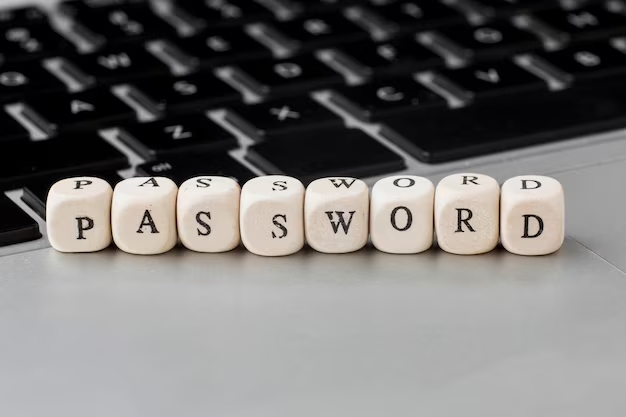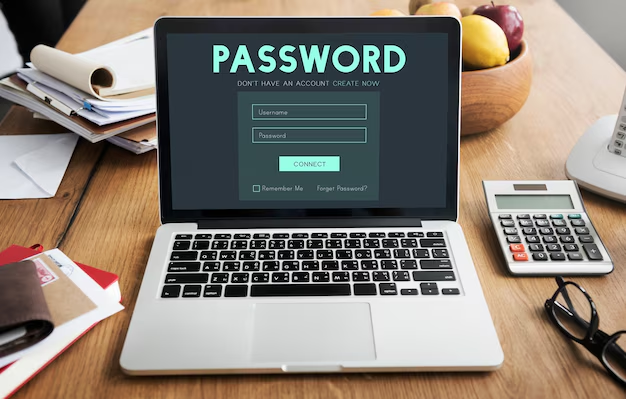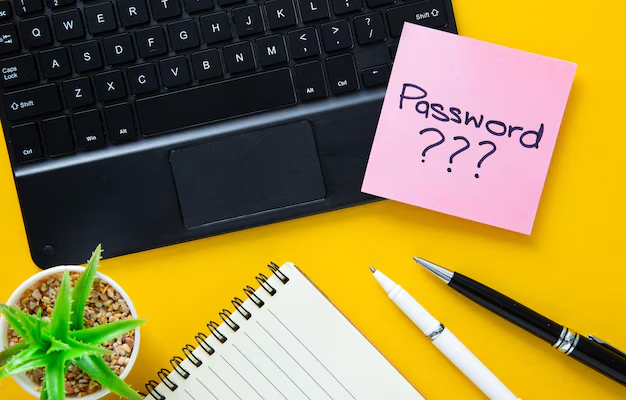In today’s digital landscape, your online security is only as strong as your weakest password. We’ve all heard the horror stories of accounts getting hacked or personal information being leaked. But what if I told you that a simple phrase like “this isn’t a website dotcom password” could be part of the problem? The sad truth is that many people still underestimate the importance of creating robust passwords and protecting their online identities.
With cyber threats lurking around every corner, it’s time to take a closer look at how we create and manage our passwords. Whether you’re logging into social media, banking apps, or even email accounts, having strong credentials can mean the difference between safety and vulnerability. Are you ready to enhance your password game? Let’s dive deep into why passwords matter and how you can keep your digital life secure!
Why Passwords Matter
Passwords are the first line of defense in our digital lives. They protect personal information, financial accounts, and sensitive data from prying eyes. A single compromised password can lead to identity theft or significant financial loss.
Think about how many services rely on passwords: email, shopping sites, social media platforms. Each account serves as a gateway to your private world. If one gate is weak, it’s easier for intruders to breach others.
Moreover, breaches happen more often than you’d think. Cybercriminals constantly seek vulnerabilities in systems and exploit poor password practices. By prioritizing strong passwords, you’re taking proactive steps against these threats.
Passwords also establish trust with online services that handle your information. When you create complex passcodes, you’re signaling that you value your security—and theirs too! The stakes are high; investing time into crafting robust passwords is a critical step toward safeguarding your digital presence.
Common Mistakes with Passwords

Many people underestimate the importance of strong passwords. A common mistake is using easily guessable information, like birthdays or pet names. These choices make it easy for hackers to gain access.
Another frequent error is This Isn’t a Website Dotcom Password across multiple accounts. If one account gets compromised, all related accounts are at risk. This can lead to a domino effect of breaches.
People often neglect password updates too. Sticking with the same password for years can invite trouble, especially if you’ve been part of a data breach without knowing it.
Some users opt for convenience over security by saving passwords in browsers without additional protection. While this might seem easy, it’s not always secure against malware attacks or unauthorized access.
Relying on simple combinations like “123456” or “password” remains surprisingly common despite ongoing warnings about their weakness. These practices leave your online identity vulnerable and exposed to threats every day.
How to Create a Strong Password
Creating a strong password is essential in today’s digital world. Start by using at least 12 characters, combining letters, numbers, and symbols.
Avoid common words or phrases that can be easily guessed. Instead of “password123,” think creatively. Use a memorable phrase or mix unrelated words together.
Incorporate uppercase and lowercase letters to make your password more complex. For instance, “Elephant$Dancing#42” is far stronger than simple variations.
Consider substituting similar-looking characters as well. An “@” for an “a,” or a “3” for an “E” adds another layer of security.
Don’t forget to change your This Isn’t a Website Dotcom Password regularly! Set reminders every few months to update them, keeping your accounts secure from potential breaches.
Taking these steps will greatly enhance the strength of your passwords and protect you online.
Tips for Remembering Your Passwords
Remembering passwords can feel like a daunting task. Yet, it doesn’t have to be. A few clever tricks can make this easier.
One popular method is creating a memorable phrase or sentence. Instead of using just random characters, think of something personal yet unique. For example, “My cat Fluffy loves tuna!” could transform into MCFlt2023!.
Another effective technique is associating your password with specific accounts. Link the website’s purpose to your password choice for better recall. If it’s for social media, you might use something related to sharing fun moments.
Visual imagery also works wonders. Picture an image that embodies your password—a fluffy cat enjoying its meal—whatever helps solidify that connection in your mind.
Consider writing down hints instead of full passwords and storing them safely in a secure place where only you can access them!
The Importance of Unique Passwords for Each Account

Using unique This Isn’t a Website Dotcom Password for each account is crucial in today’s digital landscape. When you recycle the same password across multiple sites, a single data breach can jeopardize all your accounts.
Imagine this scenario: A hacker gains access to one of your lesser-used accounts. If that password is shared with other services, they can easily infiltrate more sensitive information—like banking or email accounts.
Unique passwords act as a safety net. Each one adds an extra layer of protection between you and potential cyber threats. It limits the damage if one site suffers a security lapse.
Creating distinct passwords might seem daunting at first, but it’s worth it for peace of mind. Investing time into generating different combinations safeguards your personal data effectively and reduces vulnerability significantly.
read more info=1-346-230-1697:
Tools and Apps to Help Manage Passwords
Managing passwords can be overwhelming. Thankfully, several tools and apps simplify this task.
Password managers like This Isn’t a Website Dotcom Password LastPass and 1Password store your credentials securely. They generate complex passwords for you, reducing the risk of breaches. These platforms often feature an autofill option, allowing seamless logins across various websites.
For those who prefer a more visual approach, Bitwarden offers an intuitive interface. You can easily categorize your passwords and access them from multiple devices.
Additionally, some browsers come equipped with built-in password management features. Chrome and Firefox both save your login information securely if you’re logged into your account.
Using these tools not only saves time but also enhances security by promoting strong password practices without the hassle of remembering each one manually. Choose what fits best with your lifestyle to keep your online presence safe and organized.
Conclusion: Protecting Your Online Identity
Protecting your online identity is crucial in today’s digital landscape. With the increasing number of cyber threats, having a robust This Isn’t a Website Dotcom Password strategy is not just smart; it’s essential. The key to safeguarding your information lies in understanding the importance of strong, unique passwords for each account.
By avoiding common mistakes and taking proactive steps—like creating complex passwords and utilizing password managers—you can significantly enhance your online security. Remember that every account you create represents a potential entry point for hackers if not adequately protected.
Invest time into developing good password habits now, and you’ll be far less likely to deal with the fallout from compromised accounts later on. Your personal data deserves protection, so stay informed about best practices and remain vigilant against evolving threats to keep your digital life secure.





